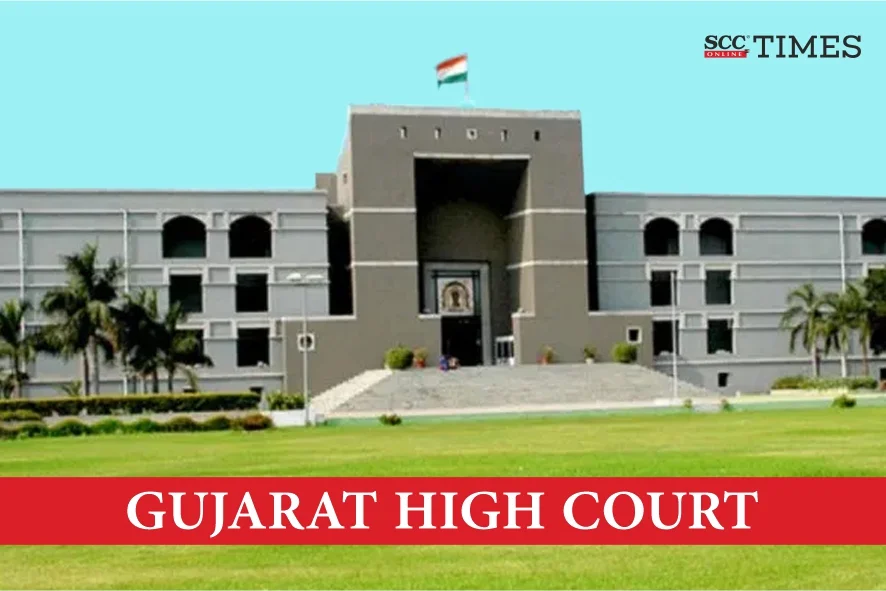Gujarat High Court: In a civil application filed by residents of Chandola Lake against the State’s demolition drive, a Single Judge Bench of Mauna M. Bhatt, J., refused to stay the demolition until the residents were provided with alternative accommodation, holding that the suit premises were a notified water body, i.e., government land, and no permission had been given to the residents to construct anything; thus, their constructions were illegal.
Background
Several residents of Chandola Lake, who had been living there for around 60 years, experienced a demolition drive undertaken by the State. Aggrieved, they challenged the same in the present petition, stating that the same was violative of fundamental rights and principles of natural justice as they were not given prior notice.
Analysis
While dealing with the first contention, the Court noted that the case of the residents was that merely because they have been residing in the Chandola Lake area for the last 60 years, they may not be deprived of their residences without notice. However, it was not disputed that Chandola Lake is a water body, and on a water body, no construction can be permitted.
Considering the State’s affidavit that the area, for which the demolition activity was initiated, is a lake and water reservoir, the Court rejected the contention that without measurement done as per Coastal Regulation Zone (‘CRZ’) Notification, the suit premises could not be stated to be situated on a water body. The Court further noted that the State’s affidavit also stated that the said land was admittedly a notified water body, and no civic body had ever given any development permission to any person for construction.
Additionally, the Court relied on Directions in the matter of demolition of structures, In re 2024 SCC OnLine SC 3291, wherein the Court held that these directions would not be applicable if there is an unauthorized structure in any public place such as a road, street, footpath, abutting railway line or any river body or water bodies and also to cases where there is an order for demolition made by a Court of law. Thus, the Court rejected the contention that the non-issuance of notice before demolition was violative of the principles of natural justice.
The Court further noted that nothing was produced to justify that the construction was undertaken on the suit premises with some permission. Further, the Court noted that Section 37 of the Gujarat Land Revenue Code, 1879, states that the land of a water body is Government land and, on such land, no construction is permitted. Hence, the Court held that the construction carried out by the residents was illegal construction and appeared to have continued for many years.
Regarding the contention that since the residents resided on the suit premises for many years and therefore, they should not be deprived of their houses without providing them adequate opportunity, the Court referred to Rajendra Kumar Barjatya v. U.P. Avas Evam Vikas Parishad 2024 SCC OnLine SC 3767, wherein it was held that illegally of unauthorized construction cannot be perpetuated. The Court further held that if the construction is made in contravention of the Acts / Rules, it would be construed as illegal and unauthorized construction, which has to be necessarily demolished. It cannot be legitimized or protected solely under the ruse of the passage of time, citing inaction of the authorities, or by taking recourse to the excuse that substantial money has been spent on the said construction. Therefore, the Court rejected the argument that procedure was not followed, and the principles of natural justice were violated. Accordingly, the Court refused to restrain the State from carrying out demolition activity of the suit premises.
The Court also opined that the reliance placed by the residents on Article 14 of the Constitution was misplaced since the present case was not that the residents were discriminated against since the demolition was already conducted in respect of all illegal constructions. The reliance placed on Article 21 of the Constitution was also misplaced because though the right to life includes the right to shelter, the residents could not claim a vested right for resettlement and rehabilitation on the very suit premises, which is a water body or government land.
Regarding the prayer seeking alternative accommodation under rehabilitation schemes of the State Government, the Court stated that the residents could make applications for the same before the authorities concerned if they are so entitled. However, the Court rejected the contention that the demolition may be restrained till alternate accommodation was provided, stating that it would amount to perpetuating illegal occupation/ construction, which would be against the principles of law.
[Fuljaha Noormohammed Shaikh v. State of Gujarat, 2025 SCC OnLine Guj 1534, decided on 29-04-2025]
Advocates who appeared in this case:
For the petitioners: AJ Yagnik
For the respondent: Government Pleader Gurusharansingh H Virk, AGP Dharitri Pancholi, AGP Sahil Trivedi, and Simranjitsingh Virk



